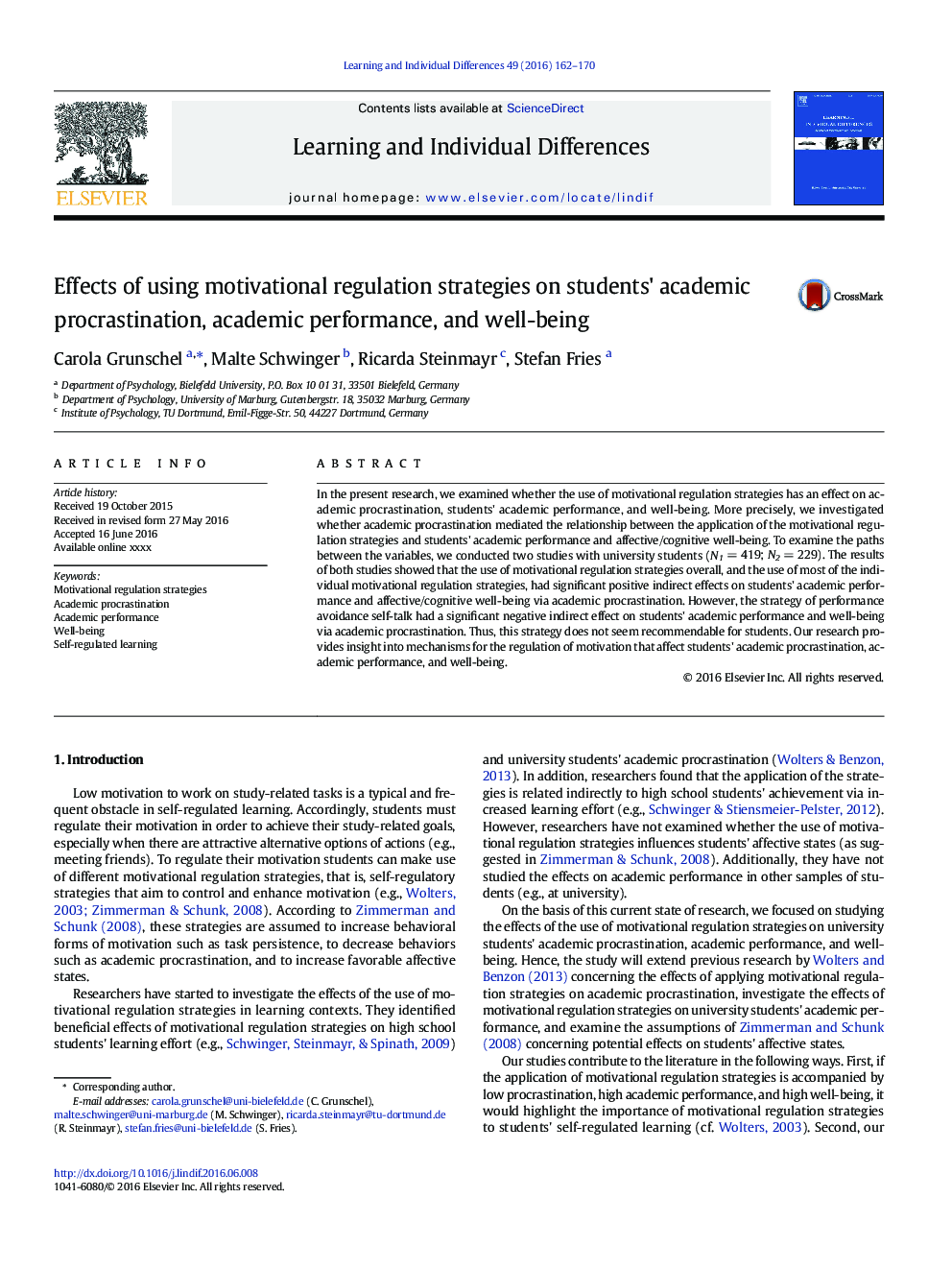| Article ID | Journal | Published Year | Pages | File Type |
|---|---|---|---|---|
| 6844727 | Learning and Individual Differences | 2016 | 9 Pages |
Abstract
In the present research, we examined whether the use of motivational regulation strategies has an effect on academic procrastination, students' academic performance, and well-being. More precisely, we investigated whether academic procrastination mediated the relationship between the application of the motivational regulation strategies and students' academic performance and affective/cognitive well-being. To examine the paths between the variables, we conducted two studies with university students (N1Â =Â 419; N2Â =Â 229). The results of both studies showed that the use of motivational regulation strategies overall, and the use of most of the individual motivational regulation strategies, had significant positive indirect effects on students' academic performance and affective/cognitive well-being via academic procrastination. However, the strategy of performance avoidance self-talk had a significant negative indirect effect on students' academic performance and well-being via academic procrastination. Thus, this strategy does not seem recommendable for students. Our research provides insight into mechanisms for the regulation of motivation that affect students' academic procrastination, academic performance, and well-being.
Related Topics
Social Sciences and Humanities
Psychology
Developmental and Educational Psychology
Authors
Carola Grunschel, Malte Schwinger, Ricarda Steinmayr, Stefan Fries,
